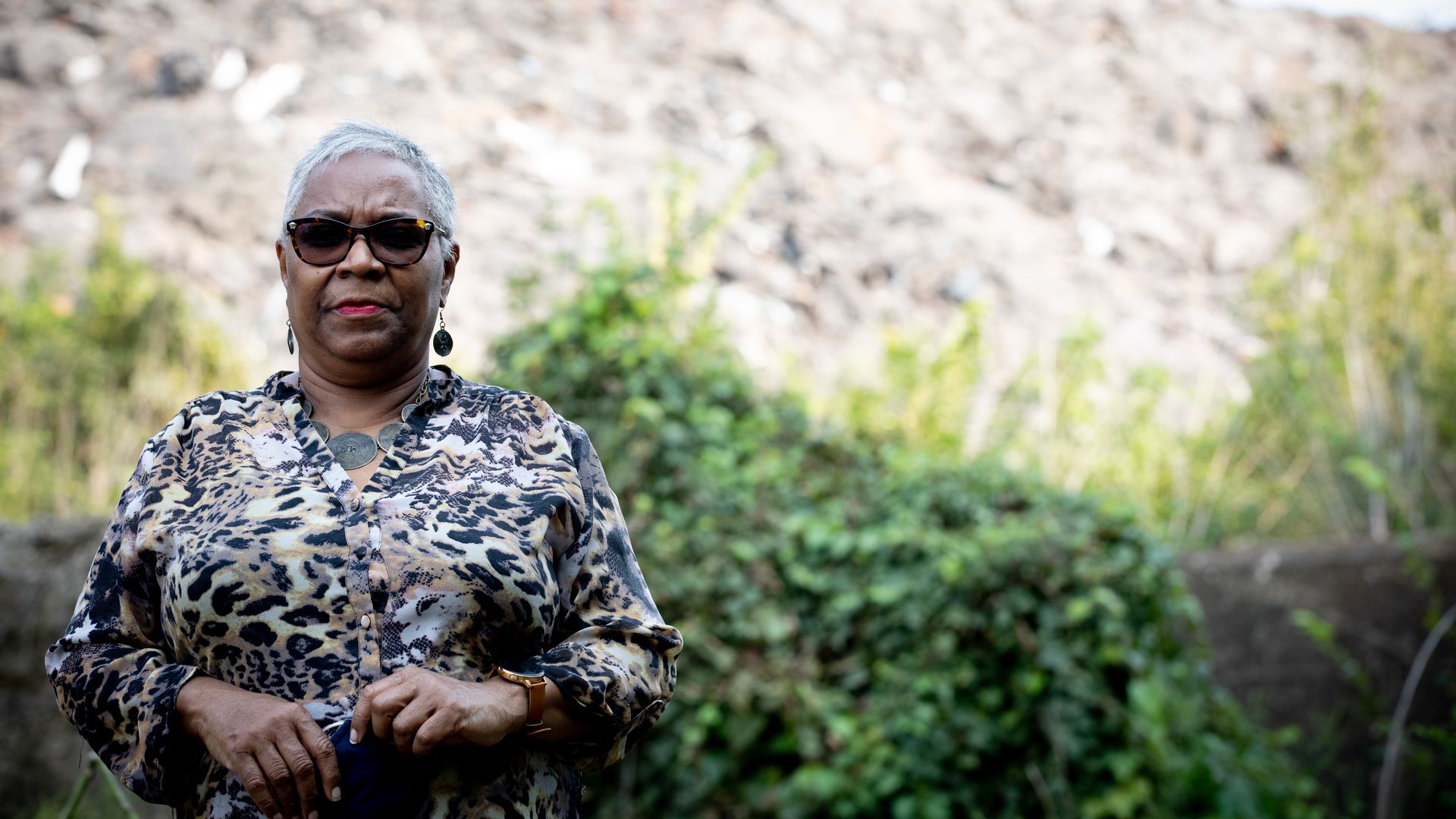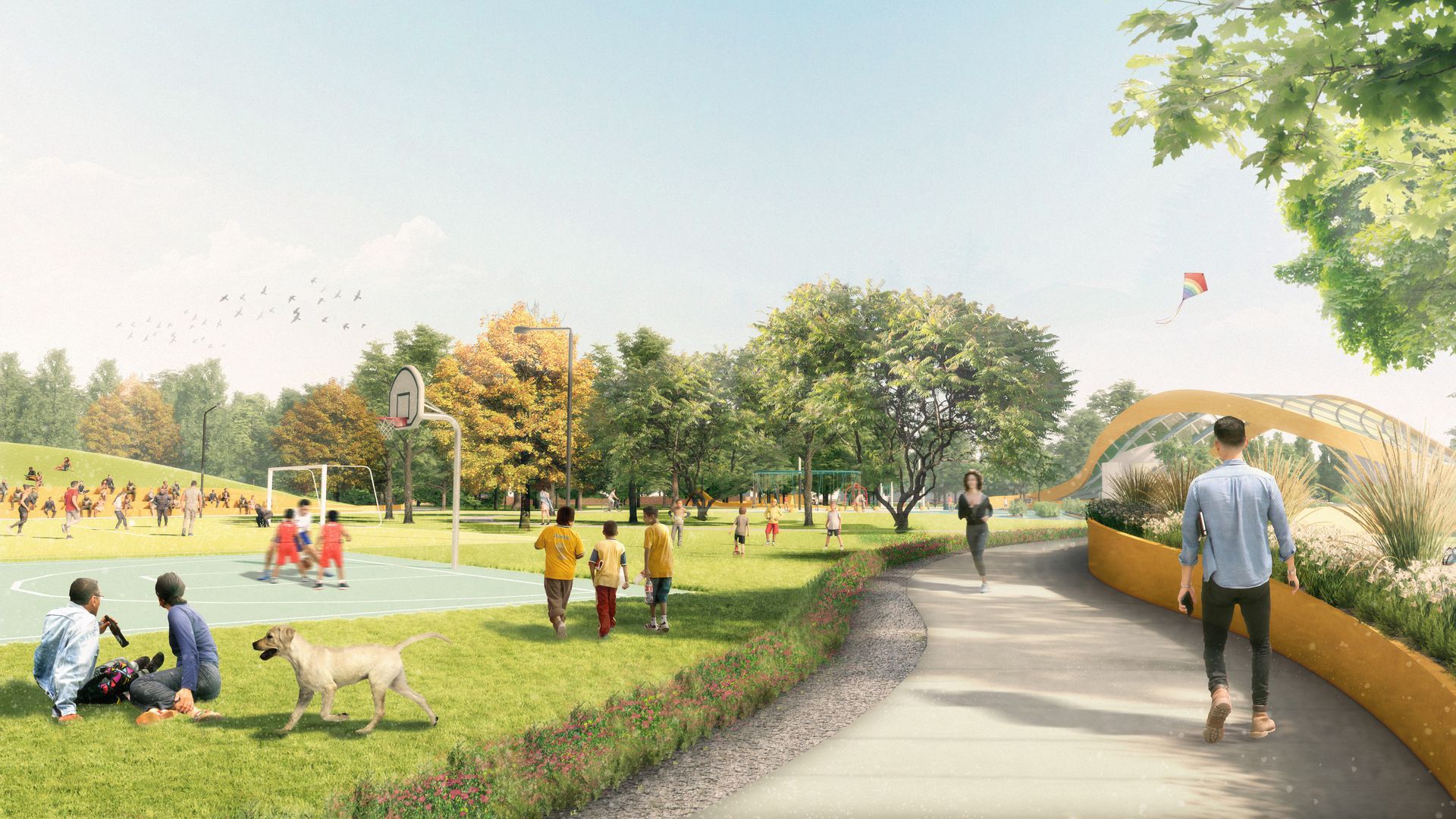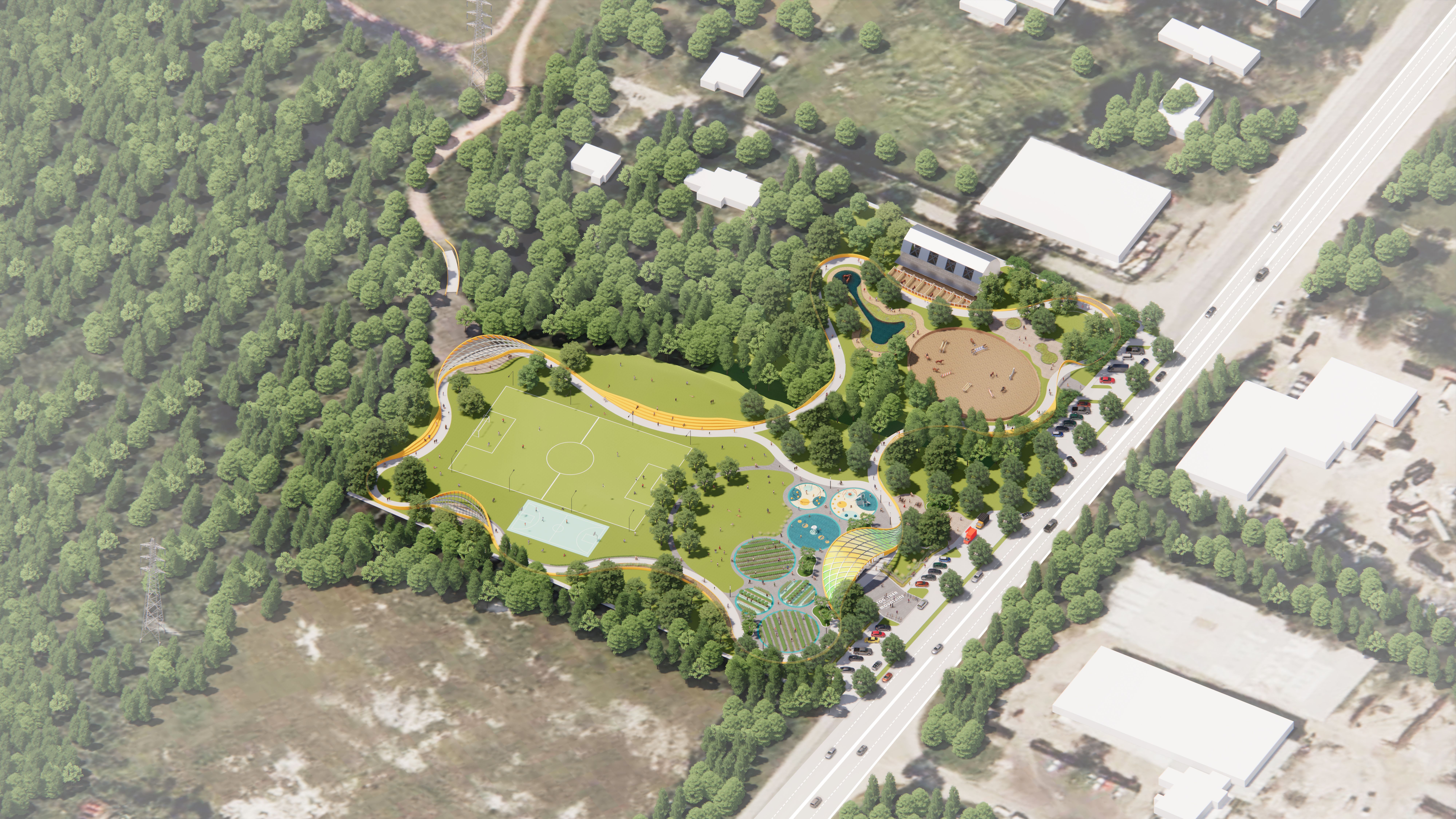Shingle Mountain toxins gone but health issues persist
Add Axios as your preferred source to
see more of our stories on Google.

Shingle Mountain emerged behind Marsha Jackson's backyard between 2018 and 2020. Photo: Allison V. Smith/The Washington Post via Getty Images
The site where Dallas' infamous Shingle Mountain once stood is finally free of toxins, Dallas officials announced this week.
Why it matters: Residents in the southern Dallas neighborhood of Floral Farms complained for years about health issues that they blamed on a recycling company, saying it was causing poor air quality in the area.
- The environmental injustice that they experienced became a national story and a Dallas Museum of Art exhibit.
Catch up fast: The roof shingles started piling up in 2018, after Blue Star Recycling moved into land zoned for industrial use right next to homes in Floral Farms.
- The pile of shingles grew into a mountain taller than resident Marsha Jackson's single-story house. Residents started experiencing breathing problems, including asthma.
- News stories highlighting the issue put pressure on officials. A judge ordered Blue Star Recycling to leave the property and remove the mountain.
- The city had the shingles removed and acquired the property in the summer of 2021, finding that the land contained lead.
Yes, but: Dallas didn't start remediating the land until August.
- The city didn't respond to questions on Wednesday about why it took two years to complete the work.
Details: The cleanup included removing lead-impacted soil, excavating the fill material to native soil and restoring the land to the condition that it was in before the recycling company moved in.
- Almost 47,500 cubic yards of soil were taken to the city's landfill.
Threat level: Jackson tells Axios that her neighbors' breathing problems have improved since the land was remediated, but their health issues persist.
- Jackson has to take breaks between long conversations and keeps water handy to clear her vocal cords, which she says have troubled her since the Shingle Mountain days.
- "The reason why I'm still in this (fight) is because I just don't want anybody to go through what we did … It's been really hard for my community," she says.
What's next for Floral Farms

Residents have shifted their focus from remediation to reclamation of the land formerly occupied by Shingle Mountain.
- They want to build a big, vibrant park on the site — but it may take years for that to happen.
The big picture: The neighborhood's long battle to fix up the area highlights the complexities and inequities of zoning laws — and the environmental racism that communities of color often experience.
Flashback: Floral Farms used to be known for its nurseries and rodeo culture. Many of the neighborhood's families, mostly Black or Latino, have lived there for generations and still have livestock and chickens.
State of play: The residents decided early on that they wanted to build a park in Shingle Mountain's place to reclaim their identity. Dallas-based HKS Architects worked with the neighborhood on a pro bono basis to design the park.
- But the land still needs to be rezoned by the city to allow for a park, and the neighborhood will need to raise enough money to build it.
Between the lines: Dallas Mayor Eric Johnson wants the city to build more parks so all residents can live within a 10-minute walk to a park.
- Supporters of Floral Farms' park project say it will be a valuable and much-needed recreational space for families in the area.
- "We will never be the same, but this is how they can give back to us," Jackson says. "Bring the greenery back in the community. Let our kids have somewhere to go walk and play."

What they want: The project envisions the city-owned, four-acre parcel as walking trails, soccer fields, a community garden, a playscape and a splash pad.
- Residents hope the city will acquire two more adjacent acres for an equine therapy center as a nod to their horse-friendly history.
The bottom line: "This is just one example of a microcosm of what happens across the U.S. and across the globe. I hope it gives people hope of what is possible," HKS architect and researcher Erin Peavey tells Axios.
Editor's note: Naheed Rajwani-Dharsi previously worked at HKS.
